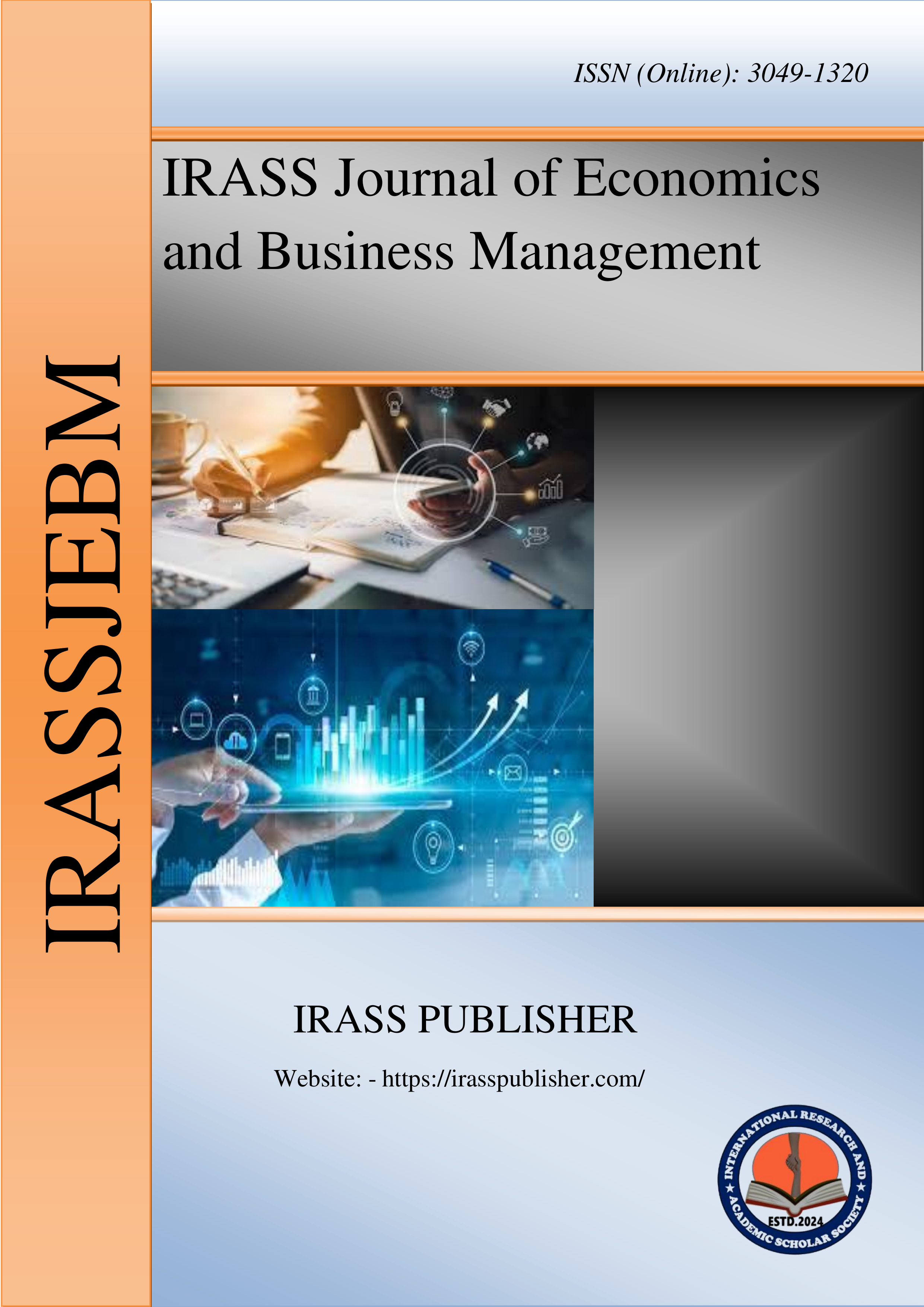INTELLECTUAL CAPITAL AND FINANCIAL PERFORMANCE OF QUOTED DEPOSIT MONEY BANKS IN NIGERIA
Sr No:
Page No:
1-7
Language:
English
Authors:
Adeleye Tope James*, Balogun Ilesanmi Emmanuel, Idris Ibrahim Kemi, Olorunfemi John Ojo, Okewu Victor Enokela
Received:
2025-02-27
Accepted:
2025-03-07
Published Date:
2025-03-09
GoogleScholar:
Click here
Abstract:
The concept of intellectual capital has gained a lot of popularity over the last 15
years, and scholars are currently engaged in an ongoing debate on how intangible assets help
create corporate value. The study looked at how Nigerian quoted deposit money banks' financial
performance was impacted by their intellectual capital. The study's goal is to evaluate how
human capital affects the return on assets of Nigerian quoted deposit money institutions. The
study used an ex-post facto research methodology, and the population consisted of all nine (9)
deposit money banks listed on the Nigerian Exchange Group as of December 31, 2024. The
sample size was determined using the census sampling technique. The nine (9) deposit money
banks' annual reports and accounts provided the data that was used. The seven-year period from
2018 to 2024 was covered by the data. Using STATA 13.0 software, the study employed both
descriptive and inferential statistics as analysis methods. According to the study, physical
capital (PC) significantly increases the return on assets of Nigerian deposit money banks, while
human capital (HC) has a negligible positive impact. Structure capital (SC) also has a negligible
positive impact on return on assets. According to the study, Nigerian deposit money banks
should focus more on the physical asset side of intellectual capital rather than just on numerical
evaluation and improvement. They should also implement policies that will enhance and
improve their human skill and competence in the area of training and development.
Keywords:
Intellectual capital, Physical capital (PC) Human Capital, and Structural Capital.
Journal: IRASS Journal of Economics and Business Management
ISSN(Online): 3049-1320
Publisher: IRASS Publisher
Frequency:
Monthly
Language:
English

